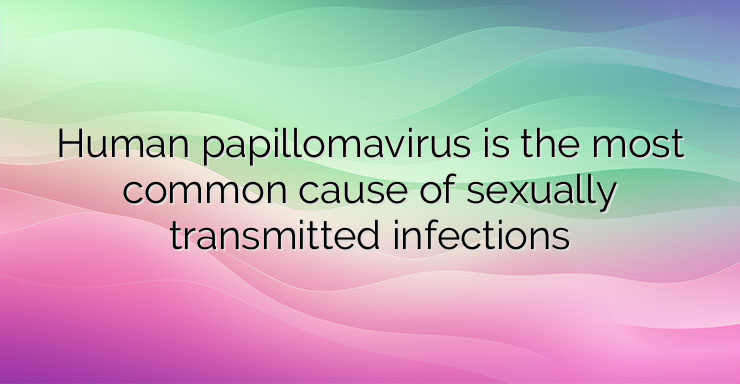Human papillomavirus (HPV) is the most common cause of sexually transmitted infections worldwide. Most affected do not have serious symptoms. However, some types could cause genital warts or increase the risk of cancer. The virus affects the skin. There are over 100 types of HPV, including strains that cause warts on the hands, feet, face, and other areas of the body. About 30 strains of the virus can affect the genitals, including the vulva, vagina, cervix, penis, scrotum, and rectum. HPV infection can occur as a result of vaginal, anal or oral sex, if one of the partners is a carrier of the virus. Most often, the spread occurs during vaginal or anal sex. It is also possible to develop an infection through close skin-to-skin contact during sexual intercourse. Therefore, transmission of the virus can occur even with the use of protective equipment, such as condoms. HPV infection can also occur in people with one sex partner. Symptoms can be hidden and appear years after infection. This makes it difficult to determine the moment of infection. In addition, the risk of spreading the virus increases because the infection can be transmitted to the partner even in the absence of symptoms. In almost all cases, HPV disappears on its own within two years, without the development of specific symptoms. If the virus is not removed, it can lead to genital warts and a higher risk of cancer. Genital warts usually form a small bump or group of bumps in the genital area. They can be small, large, raised, flat or cauliflower shaped. HPV can cause cervical cancer, as well as carcinoma of the vulva, vagina, penis, or anus. It can also cause oropharyngeal carcinoma. The risk of HPV infection can be reduced with the help of a vaccine. The HPV vaccine is safe and effective. It can prevent diseases, including cervical cancer, caused by some strains of the virus. Vaccination is not recommended for everyone over the age of 26. However, some unvaccinated people between the ages of 27 and 45 may consult a specialist doctor to determine the risks and benefits of vaccination. References: https://www.cdc.gov/std/hpv/stdfact-hpv.htm https://my.clevelandclinic.org/health/diseases/11901-hpv-human-papilloma-virus https://www. nhs.uk/conditions/human-papilloma-virus-hpv/


Leave a Reply